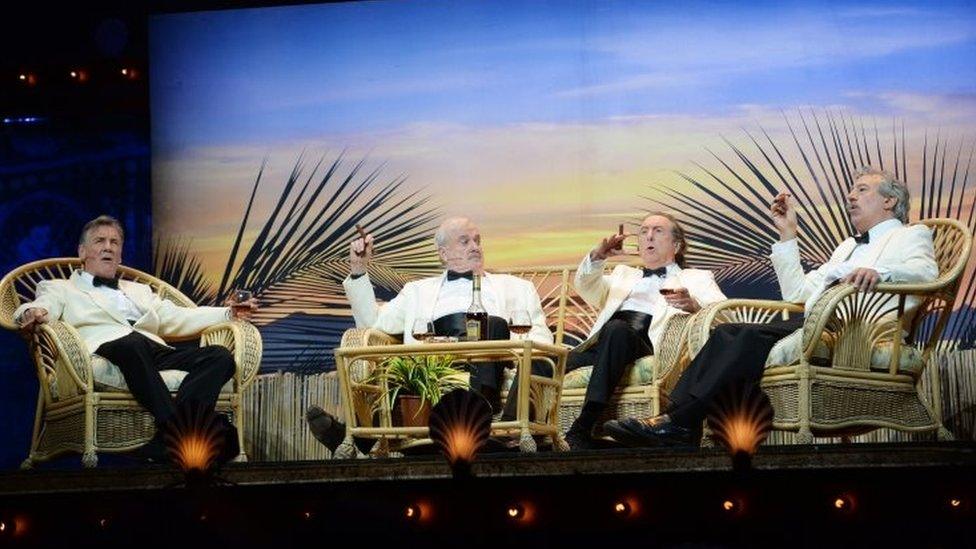Labour leadership: Activists look to move on from election defeat
- Published
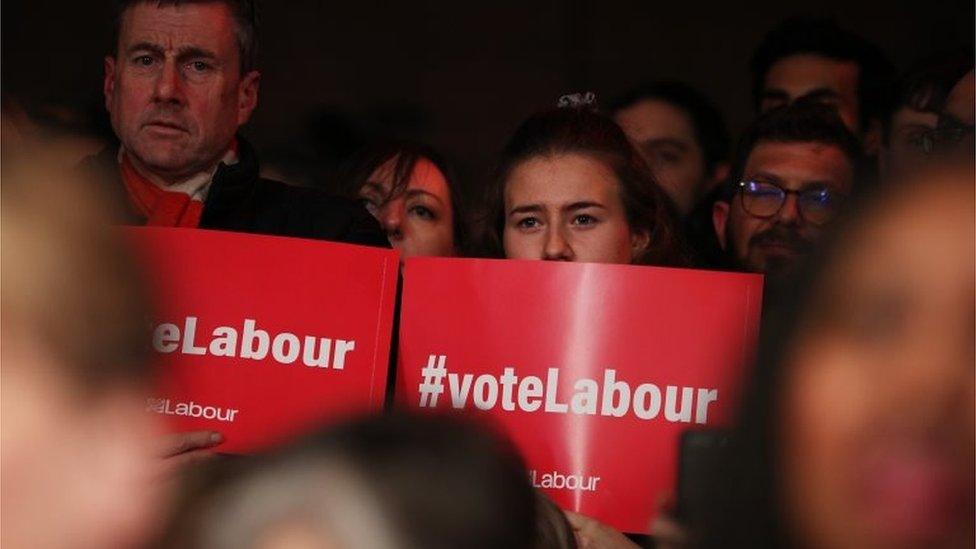
"We've had some pretty mad ideas and a lot of disappointments really."
Pam Dyal is one of thousands and thousands of Labour Party members who gave it their all in November and December.
Who trudged the streets through the wind and rain of the winter, who knocked on doors and tried to persuade members of the public to back the party she and her fellow activists in Bury North love.
She's one of thousands and thousands who were devastated in the early hours of 13 December when the candidate they had worked so hard for didn't make it.
And she's one of thousands and thousands who now have another vote, this time a vote all of their own, to choose the leader who has a crack at changing that next time round.
Talking to Pam and six of her colleagues from the constituency party today, it was crystal clear they all hope that Labour's elected politicians at Westminster can first of all find a way to move on without acrimony, to pull the party together.
Jeremy Corybn's leadership over the last four and a half years brought new members across the threshold and excited many on the left.
To grow the party so much in terms of its membership was a huge achievement.
For those on the left who had long felt that Labour had drifted from its anchor it was a success too.
But beyond the obvious failure of going significantly backwards in terms of representation in Parliament, it was without question a divisive period for the party too.
If Bury North members are anything to go by, Labour activists want to move on.
For the group we talked to today, disagreeing is fine, trying to destroy each other is not.
Activist Ciaron Boles told us the next leader must not be treated "as a Messiah" and the party has to shed a culture where anyone disagreeing with the leadership is shoved out.
One of the other members confided he'd already had an email from a fellow constituency activist criticising him for speaking out about his hope for significant change.
Whether local or national, it's obvious many members just want the internal bitterness to go.
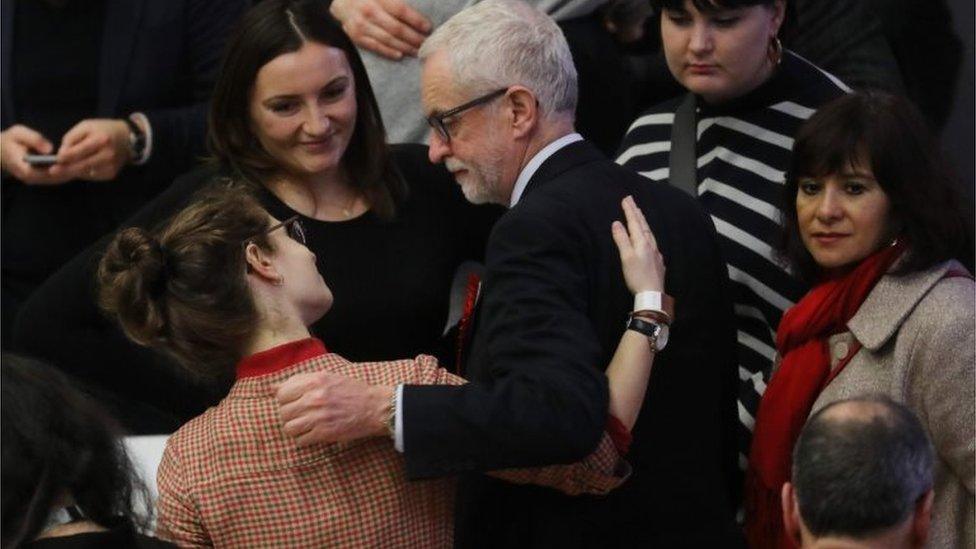
The Labour leader on the night of his party's election defeat
In part that's because for many MPs and members it's been upsetting and painful to be part of an internal civil war.
There are complaints from Mr Corbyn's most ardent supporters that some of the Westminster-based Labour establishment never adapted to his two victories as the choice of the members.
There are long-documented concerns from the other end that his most loyal lieutenants tried to divide and conquer from the start, making enemies of those who might be friends.
History will seek to apportion responsibility. But the immediate concern of many members right now is not trying to settle that argument of the last few years, but finding a way to move on.
'The Marginal Seat Test'
And in Bury North at least that means not giving the party a way to feel good, but finding a way to win.
The former MP there, James Frith, with the blessing of his activists is trying to sharpen the focus of the Labour contest.
It is a marginal seat he won by a whisker in 2017.
He recalls now the recounts at 2, 3, 4am on 13 December, conceding eventually at 5am, defeat by only 105 votes.
His belief, backed up by his activists who don't right now agree among themselves on a particular candidate, is that above all, Labour has to make sure it concentrates on finding a leader who can win in the country.
He's even set the contenders a "Marginal Seat Test", inviting them all to come and address the members and the public in Bury North.
It's a call to the candidates, and more widely to the party, to think not about what feels cosy in the comfort zone, not what might sound good in the membership meeting this winter, but what, and who might sound convincing, or get a decent hearing on the doorstep in the local elections in May this year, the ballots the next year, and the year after that, and after that, and ultimately in the next general election, likely now not until 2024.
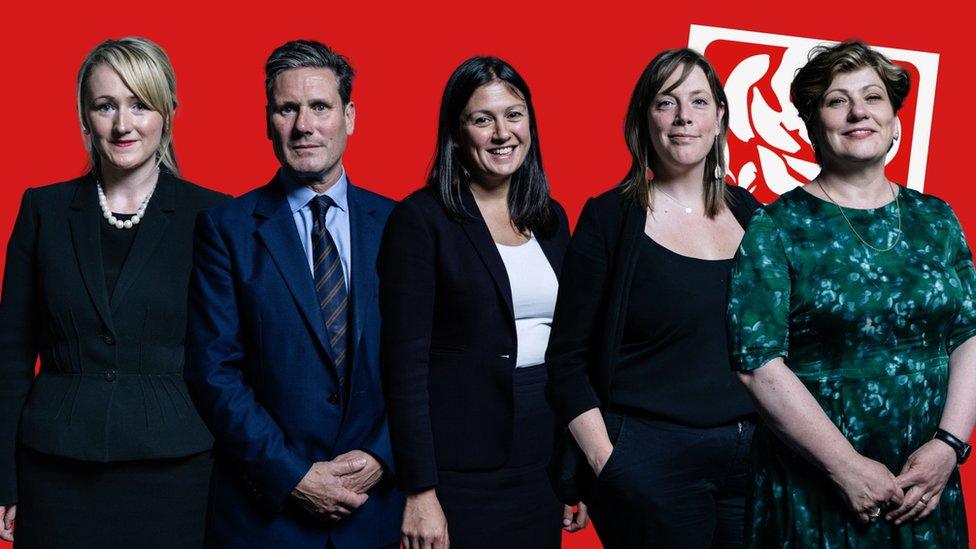
The five candidates left in the leadership contest
It is impossible right now to imagine the exact political landscape at that moment.
Think how much politics has changed in the last five years, when Mr Corbyn would have been considered a terrible bet even to win the Labour leadership in the first place.
It's impossible now to be sure which of the five leadership candidates in this first cut will feel like the obvious successor in two and a half months time.
But it's obvious that many in the Labour Party want this not just to be about who got what wrong in the election; not just about who had the upper hand in the party's internal battles of the last few years, but they are hoping to start a conversation not about apportioning blame, but about who can win the argument not just amongst themselves, but in the country in the next few years.
- Published13 January 2020

- Published18 February 2020
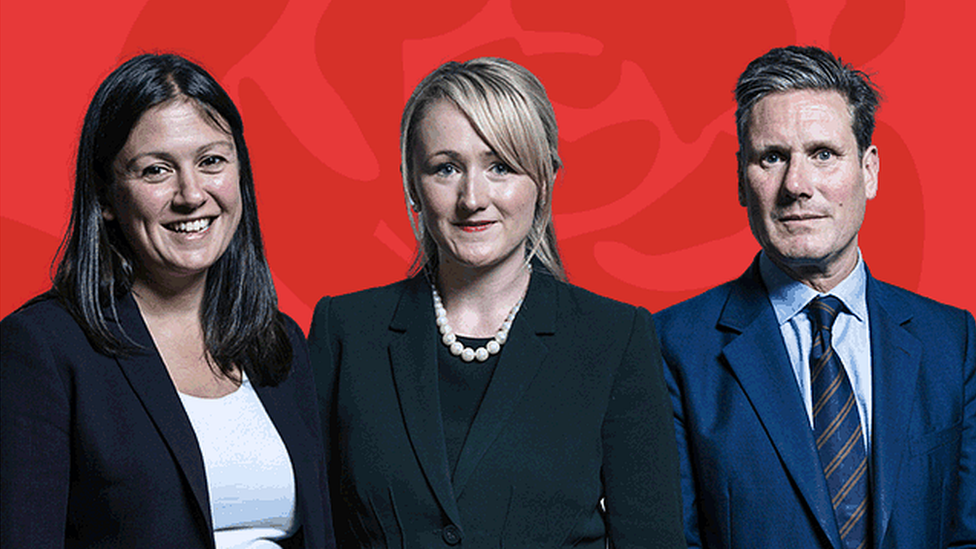
- Published10 January 2020
